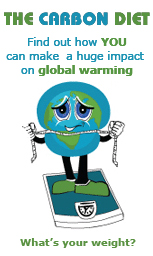Ask Ronit
 I Like Your Ponytail, A Story About Commitment
I Like Your Ponytail, A Story About Commitment
“I like your ponytail.” I said in a playful manner. “Ponytail?” he repeated in a thick French accent. There and then began the most extraordinary odyssey of my life.…
Avoid 90% of the Pesticides in Food, by Avoiding 12 Foods
Why should you care about pesticides in your food?For starters there may be as many as twenty pesticides on a single piece of fruit you eat.…
Dear Mrs. Black,It was January 1967 when this 11 year-old, frightened, little Israeli girl walked into your classroom for the first time. I had only arrived in the country two weeks before.…
With sex all around us, oozing out of our televisions, theaters, magazines, fashion, on the streets, one would think we are the most sexually informed, open and comfortable nation on the planet.”…
I’m sure by now you all have noticed the ongoing meltdown in the mortgage industry. The cause of this whole mess is a little bit complicated, rooted in both the structure of the mortgage industry, and human nature. I’ll try to explain both factors here in layman’s terms.…
Breaking old habits; Creating new Ones
We are mostly habitual beings. Webster defines habit as an acquired mode of behavior that has become nearly or completely involuntary.…
Navigation
Fuel Without The Fossil
By NY Times
For years, scientists have known that the building blocks in
plant matter, like corn kernels, stalks, straw and wood chips, contain an immense potential resource that could, in theory, help fill the gasoline tanks in America's cars and trucks. Most have focused on biology as a way to do it. But now, a new group of entrepreneurs, including Mr. Mandich, favor chemistry. They believe that techniques borrowed from oil refining and other chemical industries will allow them to crack open big biological molecules, transforming them into ethanol or even diesel and gasoline.

 My Hero
My Hero We Are Sexual Beings
We Are Sexual Beings The Banking Implosion
The Banking Implosion















Furnikat tworzymy fronty meblowe płyty fornirowane poznaj naszą gamę produktów – odwiedź stronę internetową
Post new comment